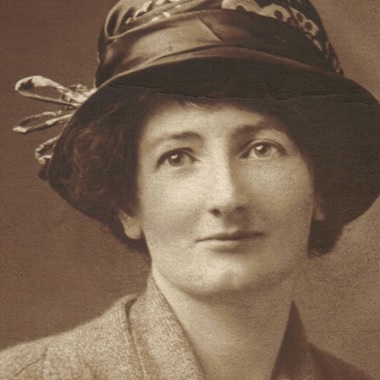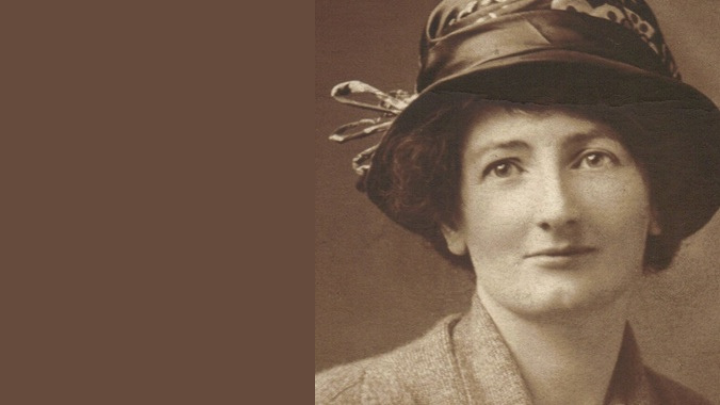On International Women’s Day 2023, Jenny Harper celebrates the achievements of working-class writer and social activist Ethel Carnie Holdsworth (1886–1962) and considers the ways in which her early twentieth-century nature writing has renewed relevance at a time of climate crisis.

The early twentieth-century writer Ethel Carnie Holdsworth was a rare example of a female working-class published novelist. She wrote poems, children’s books and short stories, and in 1917, the best-seller Helen of Four Gates, which was adapted into a major film by renowned director Cecil Hepworth. She was also a fierce social activist, campaigning on important issues such as poverty, gender prejudice and workers’ rights. She was a suffragist, fighting for votes for women by peaceful means, and opposed Britain’s military involvement in World War I.
Carnie Holdsworth recognised the threat posed by fascism both domestically and on the continent much earlier than others in the political sphere, and from June 1923 to July 1925, she co-edited the anti-fascist periodical, The Clear Light, the official ‘Organ of the National Union for Combating Fascism.’ Alongside her husband, Alfred, she sought to educate the working classes on the divisive effects of the fascist movement and called upon the industrial workers of the North to fight against the perils of international fascism at Labour and trade union meetings.
Carnie Holdsworth’s work was informed by her strong socialist beliefs: she held to a credo that saw personal liberty and expression as central to the establishment of a fair and democratic society.
These personal beliefs found a resonance in the literature of the American Romanticists, particularly Walt Whitman, who influenced her writing and who was adopted as a talisman by prominent British ethical socialist and Independent Labour Party members such as Robert Blatchford, Edward Carpenter and Katharine Bruce Glasier.
Carnie Holdsworth and other political figures saw within Whitman’s pantheistic nature writing a new model of society which seemed inherently socialist, given its tenets of comradeship, egalitarianism and inclusivity. This new life socialist movement of the late-nineteenth and early-twentieth century expected to usher in a new order of humanity, premised upon socialist ideals and a sense of ‘back to the earth’ kinship between the human and the natural world.
Much of Carnie Holdsworth’s writing on nature reflects this ethos, and in many ways, it intersects compellingly with present debate on climate change and the Anthropocene epoch (the suggested name for the present period of environmental change in which humans have had a direct impact on our Earth’s ecosystems).
In her ‘green’ poetry, such as her 1914 verse ‘Civilisation’, and in her novel Helen of Four Gates, Carnie Holdsworth gestured towards an ancient nature-based belief system and held it up as an example of an alternative to an industrialised capital-based model of society, in which both people and nature were devalued and commodified.
Many environmental thinkers consider that scientific and technological advances can only go so far in addressing our present climate crisis, and that dominant western paradigms need to be overturned in order to achieve the sustained changes needed.
Prominent figures such as the newly elected Brazilian president Luiz Inácio Lula da Silva, and previous COP 26 president Alok Sharma, have foregrounded the importance of peoples who adhere to non-westernised belief systems and who value the natural world and promote biodiversity, such as the indigenous communities of Aboriginal Australia and the South American Amazon region.
On International Women’s Day 2023, Ethel Carnie Holdsworth’s century-old writing can still be celebrated as pioneering. Her vision of a free and fair society between both humans and non-humans is just as important now as it was then.
Jenny Harper is a PhD student with the South, West and Wales Doctoral Training Partnership, based at the University of Reading and the University of Exeter.

